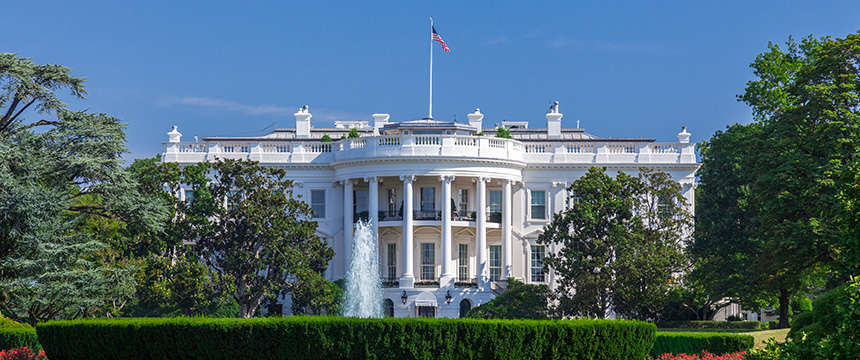Congressional Hearing Summary (10/14/2021) – The House Committee on Energy & Commerce: Subcommittee on Consumer Protection and Commerce

Date of Hearing: October 14, 2021
Subject: “Investing in American Jobs: Legislation to Strengthen Manufacturing and Competitiveness”
Committee: House Committee on Energy & Commerce: Subcommittee on Consumer Protection and Commerce
Witnesses
- Caolionn O’Connell, Ph.D., Senior Physical Scientist, RAND Corporation
- Scott Paul, President, Alliance for American Manufacturing
- Eric Sills, CEO, Standard Motor Products
- Scott Lincicome, Senior Fellow of Economic Studies, CATO Institute
Legislation
- H.R. 2907, the “Global Investment in American Jobs Act”
- H.R. 3774, the “Advancing Gig Economy Act”
- H.R. 4594, the “Restoring Brand USA Act”
- H.R. 5474, the “Reinforcing American-Made Products Act”
- H.R. 5476, the “Advancing Tech Startups Act”
- H.R. 5479, the “Supply Chain Health and Integrity for the Nation Act”
- H.R. 5492, the “Manufacturing Economy and National Security Act”
- H.R. 5495, the “Building Resilient Supply Chains Act”
- H.R. 5502, the “Integrity, Notification, and Fairness in Online Retail Marketplaces for Consumers Act”
- H.R. 5505, the “Supply Chain Security and Resilience Act”
Overview
The House Committee on Energy & Commerce: Subcommittee on Consumer Protection and Commerce met today to discuss legislation to strengthen American manufacturing, competitiveness, and supply chain resiliency.
Among the various topics discussed, there was a consistent tone of bipartisanship around the issue of reducing American dependency on China and other foreign nations for critical supplies and goods. Energy & Commerce Chairman Frank Pallone (NJ-06-D), opened the hearing by addressing the issues within the U.S. supply chain that pose a direct threat towards national security and U.S. business, specifically noting that production of pharmaceuticals, consumer electronics, and household goods are done primarily overseas. Other members, notably Congressman Adam Kinzinger (IL-16-R), Congressman Buddy Carter (GA-01-R), and Congressman Neal Dunn (FL-02-R), mentioned that pharmaceutical production and production of PPE that were crucial in the height of the pandemic, are produced mainly in China and other foreign nations. They reiterated the need for the U.S. to incentivize companies to return these manufacturing jobs back to the United States to promote American business, create jobs, and ensure national security in times of crisis when these goods are critical. Congressman Carter (GA-01) mentioned the introduction of his bipartisan MADE in America Act, as a means towards strengthening U.S. supply chains on critical goods. The MADE in American Act aims to mitigate drug shortages and provide incentives for the relocation of manufacturing pharmaceutical ingredients, PPE, and other medical devices to the United States.
There was additional discussion regarding vulnerabilities in the U.S. supply chains, with Congressman Jerry McNerney (CA-09-D) questioning Scott Paul of the Alliance for American Manufacturing about U.S. supply chain preparedness for the COVID-19 pandemic. Mr. Paul replied stating the U.S. consistently operates at a near deficit of critical goods and supplies. When a “black swan” event occurs, such as the COVID-19 pandemic, those supply chains are often vulnerable and consumers pay the price for a lack of supply of critical goods. Without reserves of critical supplies and an overdependence on foreign nations, the U.S. can’t put itself in a proactive position to be ahead of the curve when crisis strikes.
On the basis of American competitiveness, there was a discussion on the transition to clean energy. Most notably, the transition to electric vehicles and other forms of clean energy. Congresswoman Kathy Castor (FL-15-D), questioned Mr. Paul on the issue of American leadership in the clean energy space and what can be done to ensure that workers can transition cleanly towards clean energy sector jobs. Mr. Paul responded that federal investment with an emphasis on ensuring manufacturing bases are in the United States, are a means towards ensure U.S. leadership in the green energy sector.
The question of American competitiveness also focused around the debate regarding the passage of the U.S. Innovation and Competition Act (USICA). Energy & Commerce Ranking Member Cathy McMorris Rodgers (WA-05) stated that she opposed the passage of the bill and Congressman Darren Soto (FL-15) stated his support for the bill. The USICA was not discussed as much as the MADE in America Act and other American competitiveness bills such as the Restoring Brand USA Act and the Reinforcing American-Made Products Act. Nonetheless, it remained a key point of contention for the discussion of advancing American competitiveness on the global scale.